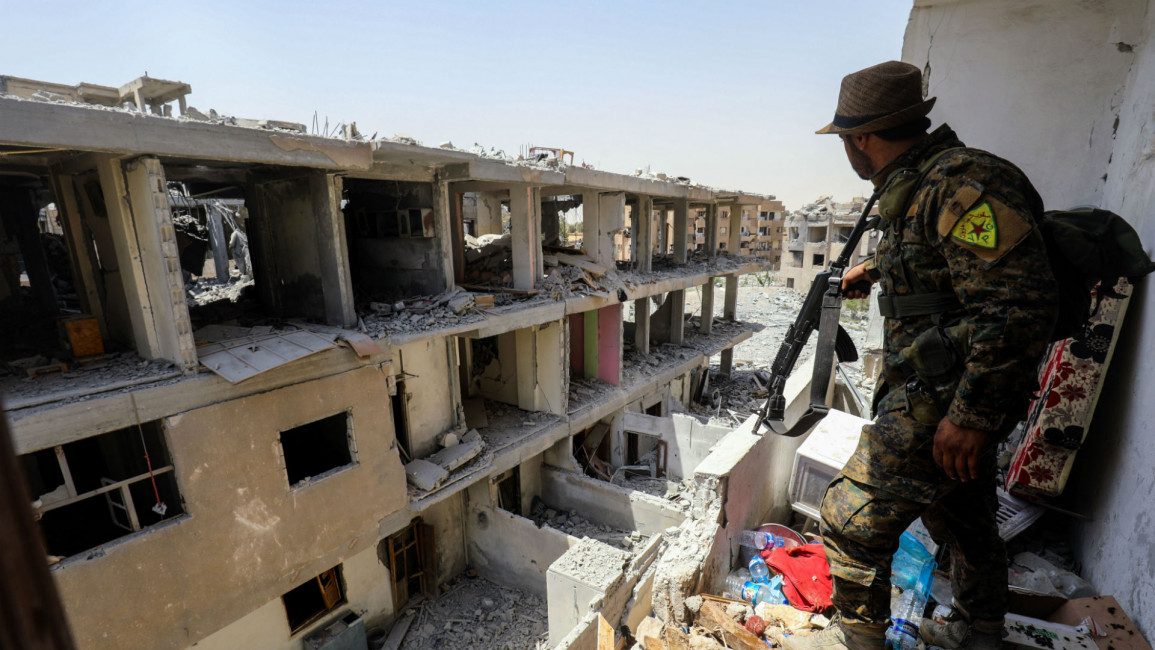Around '2,000 Islamic State fighters' battle for survival in Syria's Raqqa
Around 2,000 Islamic State fighters remain in Syria's Raqqa as US-backed Kurdish forces battle to recapture the city from the militant group.
The Syria Democratic Forces - an alliance of Kurdish and Arab fighters – have seized up to 45 percent of Raqqa since launching an offensive in early June to recapture the Islamic State group's Syria stronghold.
"Today in Raqqa [IS] is fighting for every last block... and fighting for their own survival," Brett McGurk, US special envoy for the coalition against IS told reporters.
Some 2,000 IS fighters are left in the city and "most likely will die in Raqqa", he said, according to Reuters.
The Raqqa campaign coincided with the final stages of a final drive against the IS Iraqi stronghold of Mosul, where the group was defeated last month.
Before attacking IS urban areas, offensive forces typically surround the area to ensure foreign fighters cannot escape and leave Iraq or Syria, McGurk said.
Coordinating with Turkey, the Syrian-Turkish border was sealed to make sure IS wasn't able to sneak militants trained in Syria over to carry out attacks in Europe and elsewhere, he added.
The coalition has also compiled a database of 19,000 names of IS fighters retrieved from cellphones, address books, and other documents found during operations.
They have been shared with the international Interpol agency.
The Islamic State group has lost 78 percent of the territory it once held in Iraq and around 58 percent in Syria, McGurk added.
IS overran Raqqa in 2014, transforming it into the de-facto Syrian capital of its self-declared "caliphate", which it declared three years ago on June 29.
The city became infamous as the scene of some of the group's worst atrocities, including public beheadings, and is thought to have been a hub for planning attacks overseas.
Agencies contributed to this report.



